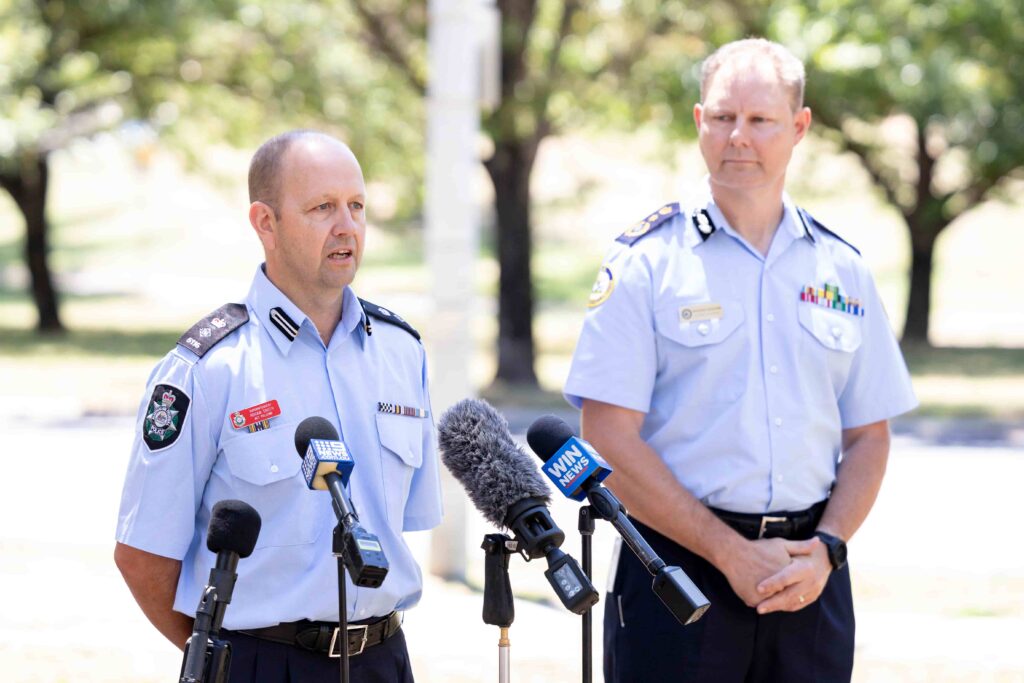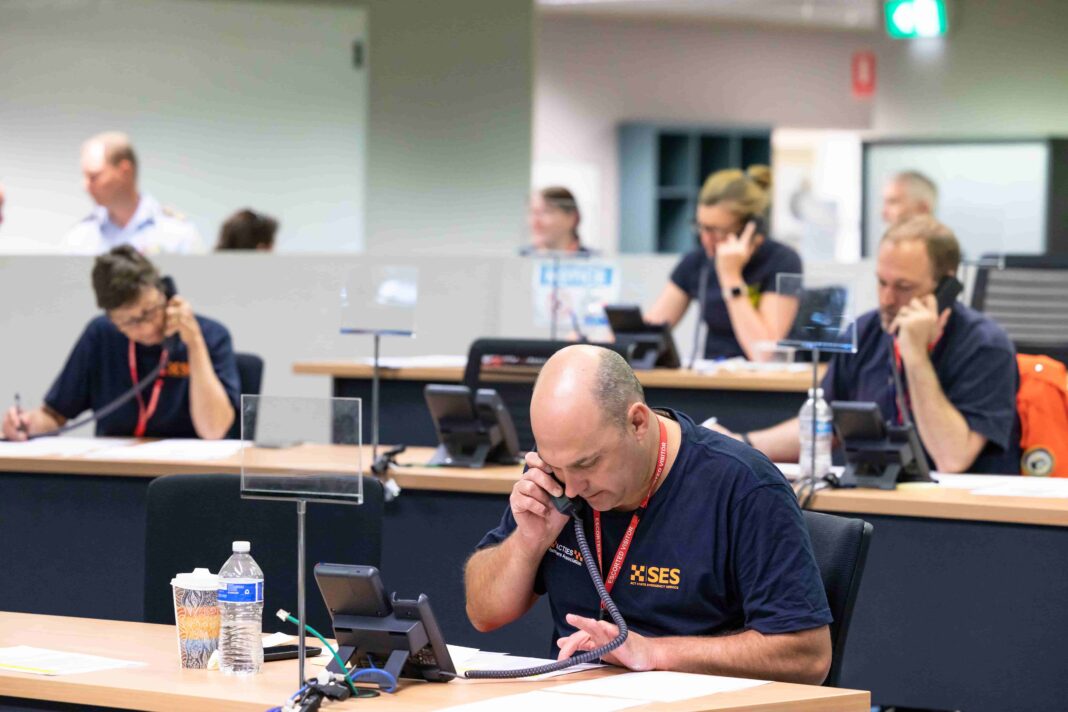Fifteen volunteers from the ACT State Emergency Service (ACTSES) and the Rural Fire Service (ACTRFS) have been seconded to the police this week to help manage the thousands of Canberrans in quarantine.
They will be on the phone for seven and a half hours a day, from 9.30am to 4pm. Cheerfully yet methodically, they work their way through lists of names, contacting people who have travelled to the Northern Beaches or Brisbane – not just to make sure they are complying with COVID-19 regulations, but to check on their wellbeing.
Over the last month, ACT police have conducted approximately 1,500 compliance checks each week. But the number of people in quarantine significantly increased in the last few days, due to the rise in coronavirus hotspots, said Detective Superintendent Rohan Smith, from the ACT Policing COVID-19 Taskforce.
As of yesterday morning (11 January), approximately 7,500 people were in home quarantine in the ACT – many of them returned from Queensland. That number is expected to drop to 3,500 now Greater Brisbane has no longer been declared a COVID-19 affected area.
But even 3,500 is still “beyond the capacity of ACT Policing”, Supt Smith said. The SES and RFS are easing the pressure.

“With assistance from SES, we’re contacting over a hundred people in quarantine every hour that we wouldn’t have been able to check on,” Supt Smith said.
ACT Health, the agency leading the local COVID-19 response, provides a list of people in quarantine, sorted by risk category. The police will pay house calls on ‘high-risk’ persons who have visited significant hotspots like the Northern Beaches – an average of 90 in-person visits a day. (On ‘days of action’, the police may do up to 1,000 in-person checks.)
Visitors to lower risk hotspots like Greater Sydney, or family groups with young children, may receive a phone call.
People in quarantine will receive a text message asking them to contact ACT Policing’s Police Assistance Line on 131 444. An ACTSES volunteer will ask people to verify their details and quarantine requirements.
The compliance rate had been extraordinarily high, Supt Smith said.
“The overwhelming response I’m hearing from our volunteers is that everyone is very supportive. People understand why we’re doing it, and we have found a high level of support from persons in those confinements. They want to get the phone call done quickly because they realise that it’s a COVID compliance check, and get on with their business.”
ACT SES chief officer Anthony Draheim said he was extremely proud of the volunteers. Whether through the bushfires, the hailstorms, or, since March, COVID, these “amazing guys and girls” want to protect their community.
ACT Policing will seek an ongoing response from the RFS and the SES. “They have indicated to us they are very keen to work with us in collaboration,” Supt Smith said.
He said Police are investigating a couple of breaches of compliance where there was blatant disregard for the quarantine requirements.
Checkpoints will continue on border roads and within the ACT.
More news:



